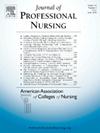Exploring priority areas to establish quality improvement education partnerships: A nominal group technique study
IF 2.9
3区 医学
Q1 NURSING
引用次数: 0
Abstract
Background
Quality improvement partnerships between higher education and healthcare organizations are emerging as a valuable way to engage pre-licensure nursing students in this content. There are no agreed guidelines to assist with the establishment of these partnerships.
Aim
To convene key stakeholders with the objective of reaching consensus on the following question: What needs to happen to establish quality improvement education partnerships between higher education and healthcare organizations?
Methods
A nominal group technique was used, adhering to the STROBE guidelines. Participants generated ideas to answer the question individually before sharing and discussing them within the group. Participants then independently voted and ranked the ideas in order of priority to reach consensus.
Results
Thirty-nine ideas were generated during the nominal group technique meeting by the five participants. A consensus was reached on ten priority areas required to establish quality improvement education partnerships.
Conclusion
These priority areas can be used as a starting point for the establishment of quality improvement education partnerships for pre-licensure nursing students. The results can be used internationally to guide pre-licensure nursing and health professions academics towards the inclusion of quality improvement education partnerships in curricula to develop quality improvement knowledge and skills of students which they can apply on entering the workforce.
探索建立质量改善教育伙伴关系的优先领域:一项名义团体技术研究
高等教育和医疗保健组织之间的质量改进伙伴关系正在成为一种有价值的方式,可以让获得执照的护理学生参与到这一内容中来。没有商定的指导方针来协助建立这些伙伴关系。目的召集主要利益相关者,就以下问题达成共识:在高等教育和医疗保健组织之间建立质量改进教育伙伴关系需要做些什么?方法采用名义分组技术,遵循STROBE指南。在小组内分享和讨论之前,参与者各自提出回答问题的想法。然后,参与者独立投票,并按照优先顺序对这些想法进行排序,以达成共识。结果5名参与者在名义小组技术会议上共提出39个想法。会议就建立提高教育质素伙伴关系所需的十个优先范畴达成共识。结论这些重点领域可作为建立护生素质提升教育伙伴关系的起点。研究结果可在国际上用于指导获得执照前的护理和卫生专业学者在课程中纳入质量改进教育伙伴关系,以培养学生在进入劳动力市场时可以应用的质量改进知识和技能。
本文章由计算机程序翻译,如有差异,请以英文原文为准。
求助全文
约1分钟内获得全文
求助全文
来源期刊
CiteScore
4.80
自引率
8.00%
发文量
153
审稿时长
52 days
期刊介绍:
The Journal will accept articles that focus on baccalaureate and higher degree nursing education, educational research, policy related to education, and education and practice partnerships. Reports of original work, research, reviews, insightful descriptions, and policy papers focusing on baccalaureate and graduate nursing education will be published.

 求助内容:
求助内容: 应助结果提醒方式:
应助结果提醒方式:


